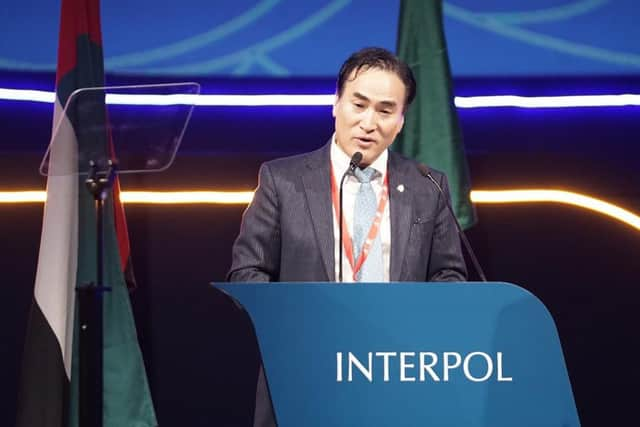Russia loses Interpol presidency vote as South Korean is elected


Mr Kim’s surprise election was seen as a victory for the White House and its European partners, who had lobbied until the final hours before the vote against Alexander Prokopchuk’s attempts to be named the next president of the policing organisation.
The US and others expressed concern that if Russia’s candidate had been elected, that would have led to further Kremlin abuses of Interpol’s red notice system to go after political opponents and fugitive dissidents.
Advertisement
Hide AdAdvertisement
Hide AdRussia accused its critics of running a “campaign to discredit” its candidate, calling Mr Prokopchuk a respected professional.
Groups campaigning to clean up Interpol celebrated the win, as did South Korea whose police and foreign ministry issued a joint statement saying Mr Kim’s election was a “national triumph” that could elevate South Korea’s international standing. Mr Kim’s win means he secured at least two thirds of votes cast at Interpol’s general assembly in Dubai yesterday. He will serve until 2020, completing the four-year mandate of his predecessor, Meng Hongwei, who was detained in China as part of a wide anti-corruption sweep.
Mr Kim, a police official in South Korea, was serving as interim president after Mr Meng’s departure from the post and was senior vice-president at Interpol. Russia’s interior ministry said after the vote that Mr Prokopchuk, one of three vice-presidents at Interpol, will remain in that position.
Spokeswoman Irina Volk told the Interfax news agency Mr Prokopchuk would “focus on advancing the stature of Interpol in the international police community and making its work more effective”.
Most of Interpol’s 194 member-countries attended the organisation’s annual assembly held in an opulent Dubai hotel Interpol faces a pivotal moment in its history.
Based in the French city of Lyon, the 95-year-old policing body is best known for issuing “red notices” that identify suspects pursued by other countries, effectively putting them on the world’s “most-wanted” list.
Critics say countries like Russia, Turkey, Egypt, Iran and China have used the system to try to round up political opponents, journalists or activists, even though its rules prohibit the use of police notices for political reasons.
The agency faced criticism two years ago when Mr Meng was voted in as president. Amnesty International has criticised “China’s long-standing practice of trying to use Interpol to arrest dissidents and refugees abroad”.
Advertisement
Hide AdAdvertisement
Hide AdMember countries can issue requests directly to other countries using Interpol’s communication system, without going through the centralised Interpol vetting that is in place for red notices. Watchdog groups are urging Interpol to reform the diffusion system.
Bill Browder, who runs an investment fund that once operated in Moscow, said Russia used the diffusion system against him, which led to his brief arrest in Spain earlier this year.
